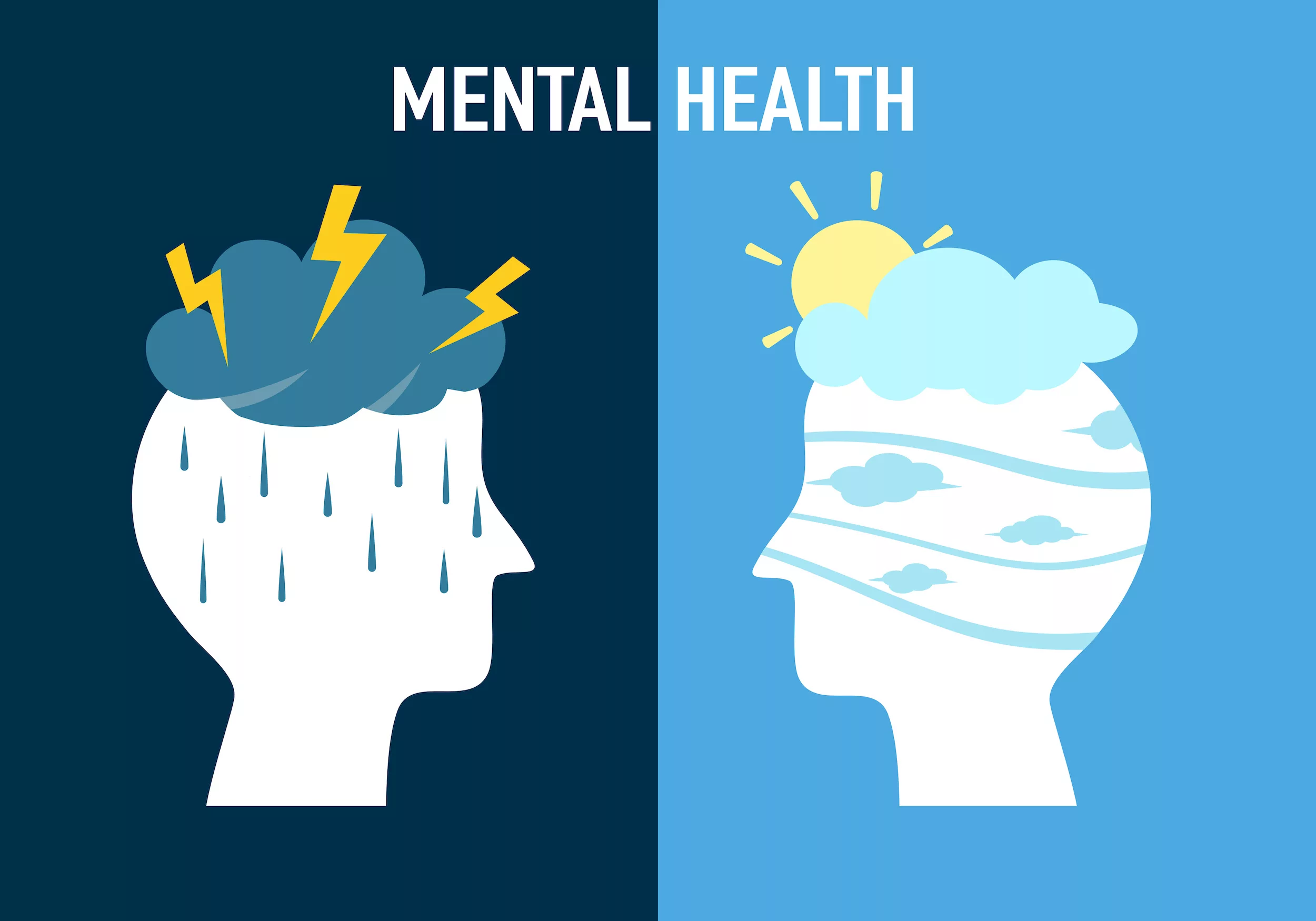2024 Guide on Mental Health Biopsychosocial Model & Mental Health Biopsychosocial Assessment
Best Guide on Biopsychosocial Approach to Mental Health with Examples & Free Template
Mental health is a complex and multifaceted issue that affects millions of people around the world.
But, while traditional approaches to treating mental health problems often focus solely on biological factors, such as medication or therapy, without considering all the other factors that impact individual mental well-being, the biopsychosocial model of mental health takes a more comprehensive approach.
This Social Work Portal biopsychosocial mental health guide will delve into everything you should know about biopsychosocial model of mental health including biopsychosocial factors of anxiety and depression, and the overall importance of biopsychosocial model in mental health.

Biopsychosocial Model Mental Health Guide
Ready to get a full scope of the mental health biopsychosocial model? Let’s do it together!


See Also: How to Write a Soap Assessment – Best Guide to Soap Progress Notes
Table of Contents: Biopsychosocial Model Mental Health Guide
Keep on scrolling down this page to read each section or click any link below to go directly to that section.
- What is the Biopsychosocial Model of Health?
- What Does Biopsychosocial Approach to Mental Health Look Like in Practice?
- What is Mental Health Biopsychosocial Assessment?
- Free Biopsychosocial Assessment Template for Mental Health Workers
- Biopsychosocial Model for Mental Health in Psychiatry & Best Mental Health Biopsychosocial Model Examples
- What are Common Biopsychosocial Causes of Mental Illness?
- What are Biopsychosocial Factors of Depression & Anxiety?
- What are Biopsychosocial Effects of Depression?
- What’s the Importance of Biopsychosocial Model in Mental Health?
- Conclusion | Biopsychosocial Model of Mental Health
- FAQ | Mental Health Biopsychosocial Model

Don’t Miss: Best Patient Health Questionnaire (PHQ) Scoring & Assessment Guide
Would you like to share feedback about this Biopsychosocial Model Mental Health Guide? If so, contact the Social Work Portal Team.
What is the Biopsychosocial Model of Health?
To best introduce biopsychosocial model of mental health, it’s only natural that we start with a brief definition. So, what is the biopsychosocial model of mental illness or biopsychosocial model of mental illness?
Definition of Biopsychosocial Model Mental Health
The biopsychosocial model of health is a holistic, and comprehensive approach used by mental health workers to understand and treat health problems. Also referred to as biopsychosocial model of mental illness, it was first introduced by George Engel in the 1970s to be an alternative to the traditional biomedical model of health, which focuses exclusively on biological factors such as genetics and physiology.
In contrast to traditional methodologies, the biopsychosocial mental health model acknowledges that health is influenced by a combination of biological, psychological, and social factors.
Now that we have a clear biopsychosocial model mental health definition, we can move to a brief overview of biopsychosocial approach to mental health.
Are you looking for a better way to manage clients and provide biopsychosocial assessments? Sign up for our Client & Case Management Software and revolutionize the way you manage your clients, cases, and staff.


Related: Best Biopsychosocial Assessments, Intakes, and Templates
Is there any biopsychosocial model of mental health PDF or biopsychosocial model of mental health PPT that has provided great value to you that we can include in this guide for other practitioners to leverage? Click here to contact the Social Work Portal Team.
What Does Biopsychosocial Approach to Mental Health Look Like in Practice?
The mental health biopsychosocial model suggests that biological factors such as genetics, physiology, and disease are only part of the picture when it comes to understanding health.
Psychological factors, such as thoughts, emotions, and behavior, also play a significant role. For example, stress can have a significant impact on physical health by increasing inflammation, disrupting sleep, and contributing to the development of chronic conditions such as heart disease and diabetes.

Biopsychosocial Model of Mental Health in Practice
Social factors, such as environment, culture, and socioeconomic status, also influence health outcomes. Social isolation, poverty, and discrimination are just a few examples of social factors that can negatively impact health.
In practice, the biopsychosocial approach to mental health means that healthcare professionals take a more comprehensive approach to patient care. They consider a patient’s biological, psychological, and social history when assessing their health (e.g., biopsychosocial bipolar disorder model, biopsychosocial model mental health depression, etc.) and developing a treatment plan.
By addressing all of the factors that contribute to a patient’s health, the biopsychosocial model of mental health aims to improve not just the symptoms of illness but also a person’s overall quality of life.
Next, we’ll take a look at a biopsychosocial mental health assessment template.

Popular Article: Best Social Work Risk Assessment Guide with Template & Samples
Do you have any questions about the biopsychosocial model of mental health? Do you have any input on biopsychosocial approach to mental health in general or a biopsychosocial model of mental health PDF that everyone should know about? If so, contact the Social Work Portal Team.
What is Mental Health Biopsychosocial Assessment?
Mental health biopsychosocial assessment is a comprehensive process used by social workers and other healthcare professionals to assess and gather information about a patient’s biological, psychological, and social history.
Mental health biopsychosocial assessment is typically used to develop a more holistic understanding of the patient’s health and to develop an appropriate treatment plan that addresses all of the factors that contribute to their health.
 | Get eLearning Videos to Boost Your Skills Subscribe to Case Management Hub software, then go to My Library! |
Biopsychosocial assessment template mental health professional use may include:
- Identifying the patient’s chief complaint
- Medical history
- Mental health history
- Current mental status
- Social support system
- Cultural and spiritual background
- Education, employment, and financial status
- Substance use or addiction issues
- Past or present trauma or abuse
- Current living situation
- Goals for treatment and barriers/challenges
Free Biopsychosocial Assessment Template for Mental Health Professionals to Use
If you’re looking for a biopsychosocial assessment mental health resource, you’re in luck!
Below you can download our free biopsychosocial assessment template mental health that you can adjust to your needs and use in your practice:
Biopsychosocial Assessment Template Mental Health (Word)
Biopsychosocial Assessment Template Mental Health (PDF)

Is there any biopsychosocial model of mental health PDF or biopsychosocial model of mental health PPT you know that would be of help to other social workers? If so, click here to contact the Social Work Portal Team.
Biopsychosocial Model in Psychiatry & Best Biopsychosocial Mental Health Examples
The biopsychosocial model is a framework that is widely used in psychiatry to understand the complex interplay of biological, psychological, and social factors that contribute to mental health disorders.
Biopsychosocial model in psychiatry recognizes that mental health disorders are not solely determined by biological factors, but are also influenced by many other psychological and social factors. See the list below for examples of how biopsychosocial model for mental health is applied in psychiatry.
Enhance your practice and take your assessments to the next level! Join All-in-One Client Assessment & Management Hub and see why this tool has become so popular.
Biopsychosocial samples and examples:
- Assessment: Mental health professionals use the biopsychosocial model to conduct a comprehensive biopsychosocial mental health assessment, in order to gain a better understanding of the underlying factors contributing to their mental health disorder.
- Treatment planning: The biopsychosocial model helps mental health professionals develop a personalized treatment plan for each patient, which may include medication, psychotherapy, and social interventions that address the patient’s unique needs and circumstances.
- Collaborative care: The biopsychosocial model for mental health emphasizes the importance of interdisciplinary collaboration, which involves mental health professionals working together with primary care providers, social workers, and other healthcare providers to address the various biopsychosocial factors that contribute to a patient’s mental health disorder.
- Prevention: The biopsychosocial model for mental health can also be applied to the prevention of different mental health disorders. For example, mental health professionals may work with communities and families to identify and address risk factors that can contribute to the development of mental health disorders, such as poverty, social isolation, and substance abuse.
Overall, the biopsychosocial model in psychiatry is very useful because it acknowledges the complex and multifaceted nature of mental health disorders, and provides a more holistic approach to diagnosis, treatment, and prevention.
Now that we have covered the basics of biopsychosocial model mental health assessment examples and samples, we’ll take a deep dive into biopsychosocial mental health model and the most common causes of mental illness.


What are Common Biopsychosocial Causes of Mental Illness?
Mental illness is a complex phenomenon, and its causes are multifactorial and often unique to the individual. Here are examples of common biopsychosocial causes of mental illness in general:
Biological Causes Examples | Biopsychosocial Model Mental Health Factors Samples
- Genetics and family history of mental illness
- Neurotransmitter imbalances or dysfunction in the brain
- Structural or functional abnormalities in the brain, such as brain injury or neurodegenerative diseases
- Prenatal exposure to toxins or maternal infection
- Chronic medical conditions, such as autoimmune disorders or chronic pain
Client Assessment & Management Software – Simple, Powerful, Flexible Sign up & start using All-in-One Case Management Software today | |
Psychological Causes Examples | Biopsychosocial Model Mental Health Factors Samples
- Trauma or abuse history
- Stressful life events, such as divorce or job loss
- Low self-esteem or self-worth
- Negative thinking patterns and cognitive distortions
- Personality traits or disorders, such as borderline personality disorder or obsessive-compulsive disorder
Social Causes Examples | Biopsychosocial Model Mental Health Factors Samples
- Lack of social support or social isolation
- Discrimination or stigma
- Financial difficulties
- Relationship problems or conflict
- Substance abuse or addiction
It’s important to note that mental illness is often caused by a complex interplay of these biological, psychological, and social factors, and different individuals may have different combinations of these factors that contribute to their mental illness. Therefore, effective treatment usually involves a personalized approach that addresses the specific needs and challenges of each individual.
Next, we’ll take a look at biopsychosocial factors of anxiety and depression to give you a better idea of how mental health biopsychosocial model is applied in practice.


Read More: Best Behavioral Health Social Work | Job Aid for Behavioral Social Workers
Do you have additional feedback on the biopsychosocial model of mental health? Do you have any further information about the biopsychosocial model of mental illness and mental health biopsychosocial assessment? Click here to contact the Social Work Portal Team.
What are Biopsychosocial Factors of Depression & Anxiety?
Depression is a complex and multifactorial disorder that involves a combination of biological, psychological, and social factors. Below is a list of key biopsychosocial factors of anxiety and depression examples and samples.
Biological Factors Examples | Biopsychosocial Approach to Depression Samples
- Changes in brain structure and function, including altered neurotransmitter levels and decreased neuroplasticity
- Chronic medical conditions, such as cardiovascular disease, diabetes, or cancer
- Hormonal imbalances, such as those occurring during menopause or thyroid dysfunction
- Chronic pain or sleep disturbances
Psychological Factors Examples | Biopsychosocial Approach to Depression Samples
- Negative thinking patterns and cognitive distortions, such as rumination and pessimism
- Low self-esteem or self-worth
- Trauma or abuse history
- Unresolved grief or loss
- Personality factors, such as neuroticism or perfectionism
- Stressful life events, such as divorce or job loss
 | Empowering Tools. Optimal Impact. x Sign up for our All-in-One Client Management Solution today & see it in action. |
Social Factors Examples | Biopsychosocial Approach to Depression Samples
- Relationship problems or conflict
- Substance abuse or addiction
- Cultural or religious beliefs that may impact help-seeking behaviors
- Self social isolation
- Financial difficulties or poverty
It’s essential to note that depression is a highly individualized mental disorder, and different individuals may have different combinations of biopsychosocial factors of depression. For those reasons, an effective biopsychosocial approach to depression treatment will typically involve a tailored approach that addresses the specific needs and challenges of each individual.
With the main factors covered, we’ll take a look at the biopsychosocial mental health effects of depression.

Related: Best Child Mental Health Assessment and Questionnaire
Do you have any questions about biopsychosocial factors of depression described above? Do you have a biopsychosocial model of mental health PDF or biopsychosocial model of mental health PPT that has provided value to you? Click here to contact the Social Work Portal Team.
What are Biopsychosocial Effects of Depression?
Depression is a mental illness that can have a range of biopsychosocial effects on individuals. Here are some common biopsychosocial effects of depression example and samples:
Biological Effects Examples:
- Changes in appetite and sleep patterns
- Fatigue and overall lack of energy
- Aches and pains, such as headaches or stomachaches
- Sexual dysfunction
- Increased risk of other medical conditions, such as heart disease or diabetes
Psychological Effects Examples:
- Low mood, sadness, or hopelessness
- Anxiety or irritability
- Negative thinking patterns, such as self-criticism or guilt
- Difficulty concentrating or making decisions
- Loss of interest or pleasure in activities once enjoyed
Social Effects Examples:
- Social withdrawal or isolation
- Relationship difficulties or conflict
- Work or school performance problems
- Financial difficulties or job loss
- Increased risk of substance abuse or addiction
Biopsychosocial effects of depression will vary depending on the individual, and not everyone with depression will experience all of the above-mentioned effects. Effective treatment usually involves a personalized approach that addresses the specific needs and challenges of each individual.
Are you ready to personalize your approach while saving administrative time? Subscribe to Client Assessment & Case Management Software today.
With all that said, it’s a perfect time to summarize the importance of biopsychosocial model in mental health.


Popular Article: Best Guide for Children Depression and Anxiety Assessment
Do you know of any other biopsychosocial assessment mental health resources we should include in our Biopsychosocial Model Mental Health Guide? If so, contact the Social Work Portal Team.
Importance of Biopsychosocial Model in Mental Health | Why is it Beneficial?
One of the main benefits of the biopsychosocial model is that it allows for a more personalized approach to treatment.
For example, someone with anxiety may have a biological predisposition to the condition, but also be experiencing stress due to a difficult work environment and unresolved psychological trauma. A comprehensive assessment can help identify the biopsychosocial factors of anxiety and guide treatment accordingly.
Similarly, biopsychosocial bipolar disorder approach may identify the genetic vulnerability to the condition, that’s also influenced by environmental factors, such as substance use or chronic stress, and psychological factors, such as a history of trauma or poor coping skills.
In addition to helping healthcare professionals develop more effective treatment plans, the biopsychosocial model also helps reduce stigma around mental health conditions.

Importance of Biopsychosocial Model in Mental Health
By recognizing that mental health is influenced by a wide range of factors, including biological, psychological, and social factors, we can move away from the idea that mental health conditions are solely the result of personal weakness or a lack of willpower. This can help reduce shame and promote a more compassionate and understanding approach to mental health.
Overall, the biopsychosocial model of mental health is an important approach to understanding and treating mental health conditions, and one that holds great promise for improving outcomes for individuals with these conditions.

See Also: Best Social Work Services Provided by Social Work Agencies, Workers, and Practices
Do you have any feedback on our biopsychosocial assessment mental health template that you would like to share? Contact the Social Work Portal Team
Conclusion | Biopsychosocial Model of Mental Health
We hope that this Social Work Portal biopsychosocial model mental health guide has helped you see that by promoting a more compassionate and understanding approach to mental health, you can help reduce stigma and encourage more individuals to seek help.
By using a biopsychosocial assessment template mental health professionals can gather information about clients’ medical history, family history, current symptoms, psychological factors, and social factors to develop a treatment plan that addresses all of these factors.
 | Better Tools. More Efficiency. x |
As a mental health professional, you play a vital role in helping individuals with mental health conditions. The biopsychosocial model provides a framework for understanding the many factors that contribute to mental health and can guide you toward more effective treatment options.
Furthermore, the biopsychosocial model of mental health holds great promise for improving outcomes for individuals with mental health conditions. As our understanding of the complex interplay of biological, psychological, and social factors continues to evolve, this approach will likely become even more important in the years to come.

Have you used a biopsychosocial model of mental health PDF that has provided value to you? If so, contact the Social Work Portal Team.
FAQ | Overview of Mental Health Biopsychosocial Model
What is the biopsychosocial model in mental health
The biopsychosocial model of health (also referred to as biopsychosocial model of mental illness) is a holistic approach to understanding and treating health problems.
The biopsychosocial mental health model acknowledges that health is influenced by a combination of biological, psychological, and social factors.
What is the biopsychosocial assessment in mental health?
Biopsychosocial assessment template mental health professionals use is a comprehensive tool that’s used to gather information about a patient's biological, psychological, and social history.
What are some common biopsychosocial factors of anxiety and depression?
Here are some common biopsychosocial factors of anxiety and depression:
Biological Factors
- Genetics and family history of depression
- Changes in brain structure and function
- Chronic medical conditions
- Hormonal imbalances
- Chronic pain or sleep disturbances
Psychological Factors
- Negative thinking patterns
- Low self-esteem or self-worth
- Trauma or abuse history
- Unresolved grief or loss
- Personality factors
- Stressful life events
Social Factors
- Lack of social support or social isolation
- Financial difficulties or poverty
- Discrimination or stigma
- Relationship problems or conflict
- Substance abuse or addiction
Note: Content on Social Works socialworkportal.com website is copyrighted.
Social Work Portal Disclaimer:Social Work Portal is not a social work agency and we do not refer social workers. This web site is provided for educational and informational purposes only and does not constitute providing medical advice or professional services. The information provided should not be used for diagnosing or treating a health problem or disease, and those seeking personal medical advice should consult with ... Read our full disclaimer here: Social Work Portal Disclaimer.
Image sources: Stock.adobe.com






